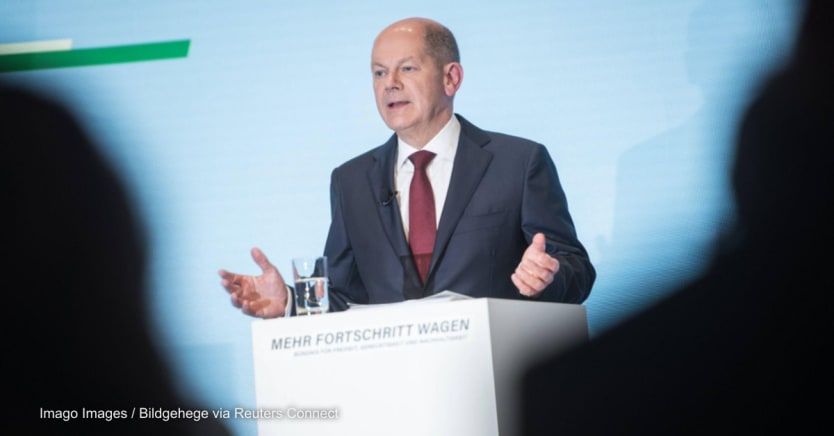
Germany is on the brink of inaugurating a new government, led by Olaf Scholz of the Social Democratic Party, or SPD. After weeks of negotiations, he has patched together an unprecedented three-way coalition comprising his center-left party, the progressive Greens, and the pro-business Free Democratic Party, or FDP.
The coalition deal, unveiled Wednesday, embraces more ambitious social and environmental policies than the government run by Chancellor Angela Merkel, such as accelerating the phaseout of coal, possibly by 2030.
Why it matters: Despite the speed with which the coalition struck an agreement, it promises to be an unwieldy marriage. That will make the division of the ministries, which often act as individual fiefdoms, even more important.
The SPD is set to take over the Federal Ministry of Health and Federal Ministry for Economic Cooperation and Development, among others, with promises to build on Merkel’s increasing engagement in the international system and marked increases in development spending. The agreement makes good on the SPD’s commitment to maintain a current target to spend 0.7% of national income on aid, committing 0.2% to so-called least-developed countries.
Despite support from the Greens and the SPD for a proposal at the World Trade Organization to waive intellectual property restrictions on COVID-19-related medical supplies, the deal appears to punt on the issue, promising only to constructively engage on international debates about a fair vaccine supply.
The Greens will be able to press their ambitious environmental agenda in a new “super ministry” that ties together climate and the economy. But the most important appointment could be at the Federal Ministry of Finance, which went to the head of the FDP, Christian Lindner, who has pledged to impose strict fiscal discipline.
The coalition must still be approved by the individual parties, but Scholz is likely to be installed as chancellor as early as the first full week of December.
Search for articles
Most Read
- 1
- 2
- 3
- 4
- 5
